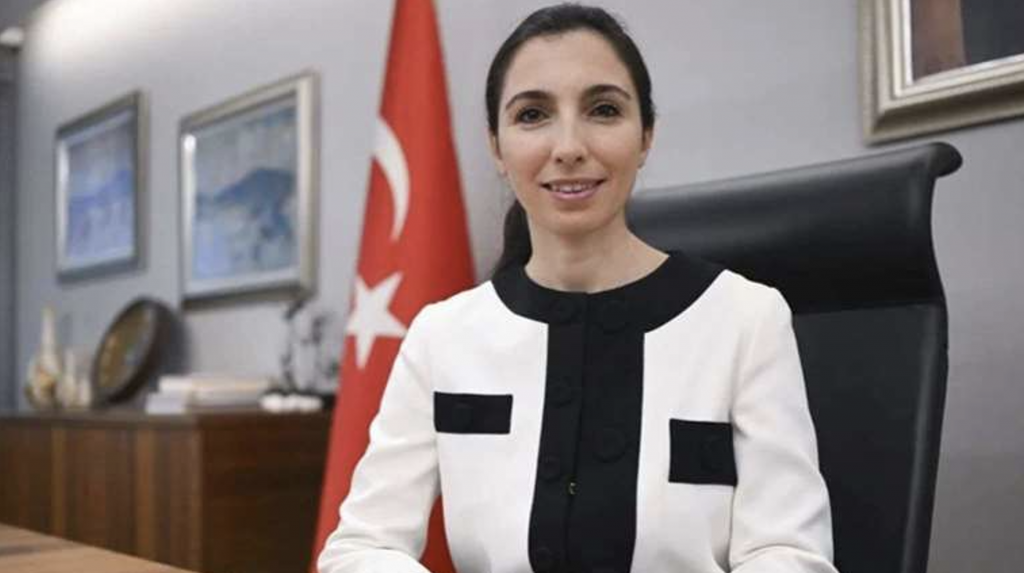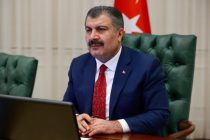Last month, Turkiye’s President Recep Tayyip Erdoğan made history when he appointed Hafize Gaye Erkan as the governor of the Central Bank of Turkiye – the first ever woman to head the 93-year-old financial institution.
Erkan enters the financial fray in her motherland armed with an impressive biography as she bids to find the optimum monetary strategies to combat the country’s severe economic crisis that has seen inflation rise to 86% last year and the Turkish currency lose 90% of its value in the past ten years.
The 41-year-old Istanbul-born financier has enjoyed a stellar career in the United States — her adopted home for these past two decades — having initially travelled there to complete her higher education before choosing to stay on and work.
Erkan studied Industrial Engineering from Istanbul’s prestigious Boğaziçi University. After graduating in 2001, Erkan earned a Ph.D. scholarship to Princeton University, where she studied applied mathematics. She understood early on the importance of translating theoretical principles into real-world solutions, with her doctorate specialising in Operations Research and Financial Engineering, which she gained in 2006.
She later completed Harvard Business School’s Advanced Management Programme (2015) and the Stanford Graduate School of Business Executive Program in Leadership (2016).
Erkan’s professional career started as an associate at global investment bank Goldman Sachs in 2005. She went on to become a managing director at the bank and was named Head of Financial Institutions Group Analytics and Strategies in 2011.
Three years later, Erkan joined First Republic Bank as Chief Investment Officer, where she rapidly rose up the ranks. She was named the bank’s President in 2017 at the age of 38; by 2021, she was the bank’s Co-Chief Executive Officer.
According to San Francisco Business Times, in 2018 Erkan was the only woman under the age of 40 holding a President or CEO title at one of America’s top 100 banks. Her achievements were also captured in Crain’s New York Business’s ‘40 Under 40 Class of 2018’ annual list.
Erkan resigned from First Republic Bank in 2021 and went on to join the board of directors at Fortune 500 firm Marsh McLennan in March 2022. She also served on the board of directors for Tiffany & Co. from 2019 through to the company’s acquisition by LVMH in 2021.
Few will have expected Erkan to be named the Governor of the Central Bank of Turkiye on 8 June, bu the news generated positive news at home and abroad. Her appointment, coupled with the return of Mehmet Şimşek as Turkiye’s experienced Finance Minister suggests the country is reverting to more established fiscal policies to curb the country’s high inflation.
President Erdoğan’s unorthodox approach to finance in recent years had seen interest rates frozen despite the massive depreciation of the Turkish lira, creating a huge cost of living crisis for ordinary Turks.He seems to have changed tact after being re-elected as president on 28 May, and his appointments of Erkan and Şimşek are the biggest indication of that.

A fortnight into her new role, the Central Bank Governor presided over the first interest rate increase in two years, up from 8.5% to 15%.
Analysts feared that the 6.5% hike, while bold, would be insufficient to tame inflation, which has proven to be the case as the Turkish lira has continued to fall and record new lows against leading foreign currencies. One US dollar is worth more than 26 TL, while one British pound is equal to over 34 TL.
The Central Bank is clearly aware the road to financial stability and bring inflation back down to 5% in Turkiye is long and tough. In its statement on 22 June, the bank said its interest rate increase was the first step “to begin the monetary tightening process in order to establish the disinflation course as soon as possible, to anchor inflation expectations, and to control the deterioration in pricing behaviour”.
Yet with inflation and consumer prices in Turkiye expected to rise again this month, Erkan and her colleagues on the Central Bank’s Monetary Policy Committee (MPC) could increase rates again when they meet next week on 20 July. Some are predicting interest rates to go up by a further five percentage points to 20%.
The CMP said it will “continue to take its decisions in a predictable, data-driven and transparent framework”.
Erkan is the fifth governor to be appointed the Central Bank of Turkiye since 2016 and while there may be confidence in her abilities, investor jitters in the way Turkiye’s finances are managed will take more to overcome.
President Erdoğan, who continues to maintain that high interest rates are the root cause of high inflation, has failed to heed the advice of Erkan’s predecessors.
The revolving door of governors saw Murat Çetinkaya (2016-2019), Murat Uysal (2019-2020), Naci Ağbal (2020-2021), and Şahap Kavcıoğlu (2021-2023) all unsuccessfully try to thwart the long-serving conservative Muslim leader’s meddling in the decisions of Turkiye’s Central Bank.
Erkan will need to first win over the Turkish President to respect the independence of the Central Bank and to keep faith with its painful programme of high interest rates before she can help Turkiye return to a healthy bank balance.




